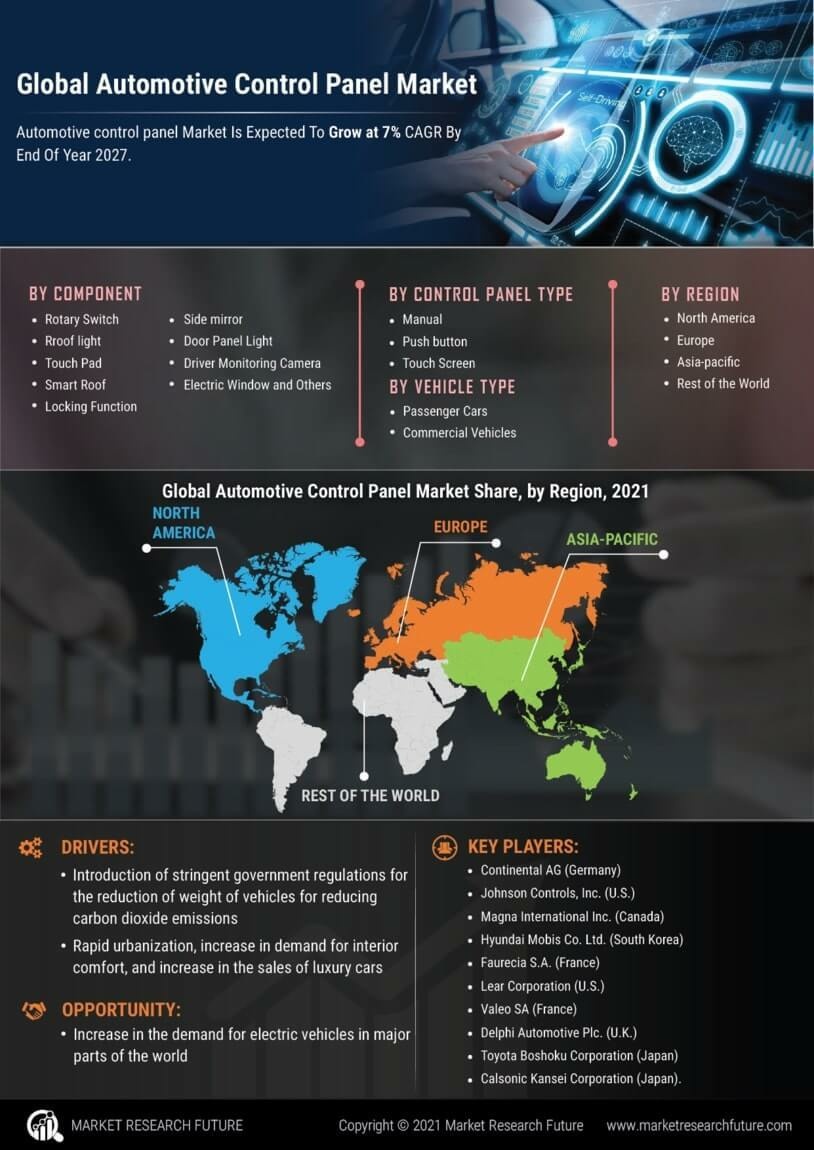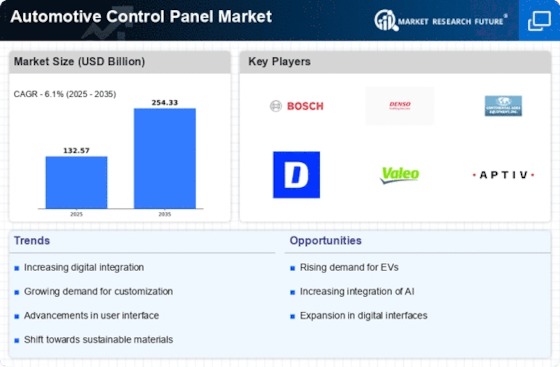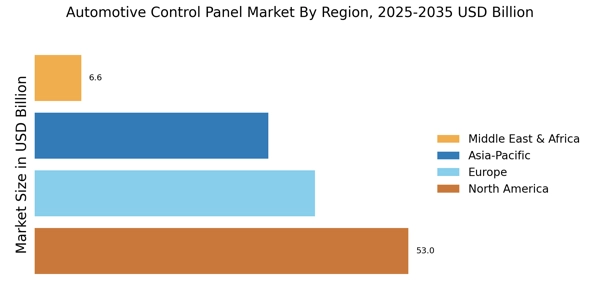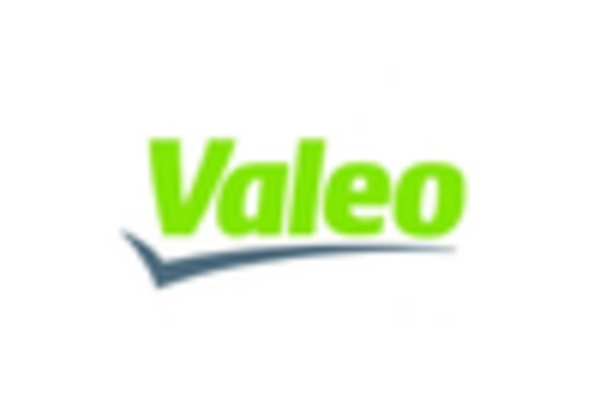Rising Demand for Electric Vehicles
The Automotive Control Panel Market is significantly influenced by the rising demand for electric vehicles (EVs). As consumers increasingly prioritize sustainability and energy efficiency, automakers are responding by developing electric models that require specialized control panels. These panels must accommodate unique functionalities such as battery management systems and regenerative braking controls. The EV segment is expected to account for a substantial portion of the automotive market, with projections indicating that by 2025, electric vehicles could represent over 25% of total vehicle sales. This shift necessitates the evolution of control panel designs to support the specific needs of electric drivetrains, thereby creating new opportunities for manufacturers within the Automotive Control Panel Market.
Regulatory Compliance and Safety Standards
The Automotive Control Panel Market is also shaped by stringent regulatory compliance and safety standards. Governments worldwide are implementing regulations that mandate advanced safety features in vehicles, which directly impacts the design and functionality of control panels. For instance, the introduction of new safety protocols requires control panels to integrate features that enhance driver awareness and minimize distractions. As of 2025, compliance with these regulations is expected to drive innovation in control panel technology, as manufacturers strive to meet safety benchmarks while maintaining user-friendly designs. This regulatory landscape not only influences product development but also creates a competitive environment where companies must continuously adapt to changing standards, thereby shaping the future of the Automotive Control Panel Market.
Consumer Preference for Enhanced User Experience
In the Automotive Control Panel Market, consumer preferences are shifting towards enhanced user experiences, prompting manufacturers to innovate their control panel designs. Features such as touchscreens, voice recognition, and customizable interfaces are becoming increasingly popular among consumers. Market Research Future indicates that approximately 60% of consumers consider the quality of the control panel as a critical factor when purchasing a vehicle. This trend suggests that automakers must prioritize user-centric designs to remain competitive. As a result, the industry is witnessing a growing emphasis on ergonomics and aesthetic appeal, which could lead to a more engaging driving experience. The focus on user experience is likely to drive further advancements in control panel technology, influencing future product development.
Growth of Connected Vehicles and IoT Integration
The Automotive Control Panel Market is witnessing a transformative phase with the growth of connected vehicles and the integration of Internet of Things (IoT) technologies. As vehicles become increasingly connected, control panels are evolving to support a range of functionalities, including real-time data analytics, remote diagnostics, and over-the-air updates. This trend is indicative of a broader shift towards smart mobility solutions, where vehicles are not just modes of transport but also platforms for connectivity and information exchange. By 2025, it is anticipated that the number of connected vehicles on the road will exceed 500 million, creating substantial demand for advanced control panel systems that can handle complex data streams. This integration of IoT into the Automotive Control Panel Market presents both challenges and opportunities for manufacturers, as they seek to develop systems that are both robust and adaptable.
Technological Advancements in Automotive Control Panels
The Automotive Control Panel Market is experiencing a surge in technological advancements, particularly with the integration of advanced driver-assistance systems (ADAS) and infotainment technologies. These innovations enhance user experience and safety, leading to increased demand for sophisticated control panels. As of 2025, the market is projected to grow at a compound annual growth rate (CAGR) of approximately 7.5%, driven by the need for more intuitive interfaces and connectivity features. Manufacturers are investing heavily in research and development to create control panels that not only meet regulatory standards but also provide seamless integration with mobile devices and smart technologies. This trend indicates a shift towards more interactive and user-friendly designs, which could redefine consumer expectations in the automotive sector.

















